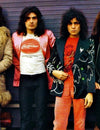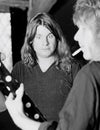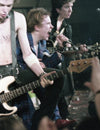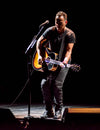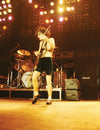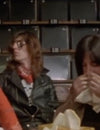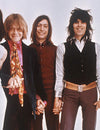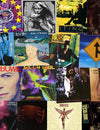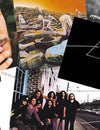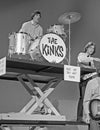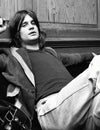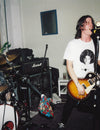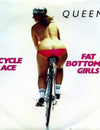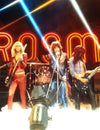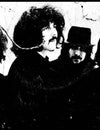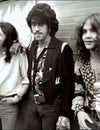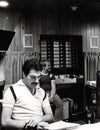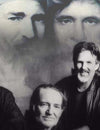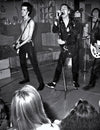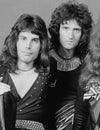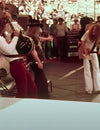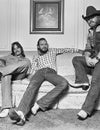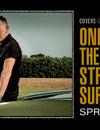
Queen: The Jazz Album
Queen’s seventh studio album, ‘Jazz,’ was a commercial success though it was met with heavy criticism by prominent media publications. It was either praised for being as “diverse an album Queen had recorded to date,” or chastised for being “dull” and “imitative.” They were even called “the first truly fascist rock band” by Rolling Stone. Released in November 1978, the album has been certified Gold in the UK, Germany, France and Austria, and Platinum in Canada, the Netherlands, Poland, Switzerland and the US. It reached number two on the UK Albums Chart and number six on the US Billboard Chart. Four singles from the album were released: ‘Bicycle Race’ / ‘Fat Bottomed Girls,’ ‘Don’t Stop Me Now,’ ‘Mustapha,’ and ‘Jealousy.’
What's In An Opinion?
The February 8th, 1979 Rolling Stone review of the album, penned by Dave Marsh, suggested the album was “more of the same dull pastiche,” and that the band displayed “elitist notions”:
"There's no jazz on Queen's new record, in case fans of either were worried about the defilement of an icon. Queen hasn't the imagination to play jazz – Queen hasn't the imagination, for that matter, to play rock & roll. What's most disconcerting about their arrogance is that it's so unfounded: Led Zeppelin may be as ruthless as medieval aristocrats, but at least Jimmy Page has an original electronic approach that earns his band some of its elitist notions. The only thing Queen does better than anyone else is express contempt."
Marsh took every opportunity to express his hatred of everything Queen produced, giving their albums two-star ratings in Rolling Stone’s record guide. In the second edition of the guide, he updated his rating to one-star.
In the 1983 RS Record guide, he says:
“The group's flamboyance couldn't always compensate for the weakness of its songwriting...Queen effectively mimicked all the big-time British bands, moving through Zeppelin-like heaviness, Mercury's breathy vocals and piano, and May's more mainstream rock singing and guitar work...Greatest Hits is redundant to the single 'Crazy Little Thing Called Love', the only listenable rock song in a dismal career.”
Rolling Stone has since featured it on their list of ‘10 Classic Albums that Rolling Stone Originally Panned.’ They’ve admitted it’s a classic record, and said of Marsh’s vitriolic reviews:
“Sometimes a reviewer just seems to have a really, really low opinion of a band, which seems to be the case with Dave Marsh and Queen.” Mitchell Cohen, a US writer for the rock magazine Creem, called the album “absurdly dull,” and suggested it was filled with “dumb ideas and imitative posturing.”

Recent reviews have praised the album, however: Stephen Thomas Erlewine of Allmusic.com:
“Famously tagged as "fascist" in a Rolling Stone review printed at the time of its 1978 release, Jazz does indeed showcase a band that does thrive upon its power, thrilling upon the hold that it has on its audience. That confidence, that self-intoxication, was hinted at on News of the World but it takes full flower here, and that assurance acts as a cohesive device, turning this into one of Queen's sleekest albums. Like its patchwork predecessor, Jazz also dabbles in a bunch of different sounds -- that's a perennial problem with Queen, where the four songwriters were often pulling in different directions -- but it sounds bigger, heavier than News, thanks to the mountains of guitars Brian May has layered all over this record. If May has indulged himself, Freddie Mercury runs riot all over this album, infusing it with an absurdity that's hard to resist.. since over-the-top campiness has always been an attribute in Queen, this kind of grand-scale exaggeration gives Jazz a sense of ridiculousness that makes it more fun than many of their other albums.”
Loudersound ranked ‘Jazz’ as Queen’s fourth-best album, saying that it represented “some of the most satisfying moments in Queen’s career.” Ultimate Classic Rock deemed it their third-best album based on its diversity, citing tracks ‘Fat Bottomed Girls’ and ‘Mustapha’ as examples of the range on the record.

The Singles
The band was looking to record outside of the UK for tax reasons after they had received a prohibitive tax bill. Brian May was forced out of the UK and fled to Canada due to his tax issues. He rendezvoused with the rest of the band at the Montreux Jazz Festival in July of 1978 where they met up with David Bowie. Bowie convinced them to record in Montreux.
‘Fat Bottomed Girls’ was one of four tracks the band recorded an early version of in the UK before finishing the album in Switzerland at Mountain Studios in Montreux. Written by guitarist Brian May who split vocal duties on the song with Freddie Mercury, though Mercury performed the song live. The song has been certified Platinum in the UK, and Double Platinum in the US. It was released with ‘Bicycle Race’ as part of a double A-side single. The band staged a nude all-female bicycle race to promote the single at Wimbledon Stadium in London. They borrowed the bicycles from a local shop and were made to purchase new seats for all the bikes as they had been “used in an improper manner.”
‘Don’t Stop Me Now’ was released in 1979; its B-side was ‘In Only Seven Days.’ It was recorded at Super Bear studios in France. It’s included in the 1981 compilation album ‘Greatest Hits,’ and in June 2011 an old take of the song with more guitar parts was included on the bonus EP of the re-released and remastered ‘Jazz’ album as part of Queen’s 40th anniversary celebration. It’s one of their most popular songs to this day. In 2014, Rolling Stone readers voted it their third-favourite Queen song.
‘Mustapha’ is the first track on the ‘Jazz’ album, and has been described by Circus magazine as “an uptempo Arabic rocker.” That is accurate. Written by Freddie Mercury, the lyrics are English, Arabic, Persian..and some words that are wholly invented, as far as anyone can tell. Mercury would routinely replace the introduction to ‘Bohemian Rhapsody,’ with the lyrics from ‘Mustapha’: Instead of “Mama, just killed a man..” he would sing “Allah will pray for you.”
‘Jealousy’ was written by Freddie Mercury and released as a single in only five countries. Brian May’s unusual, sitar-sounding guitar sound carries the song.
Had they not had tax issues, and not met up with Bowie in Montreux, who know what direction the album may have taken....









